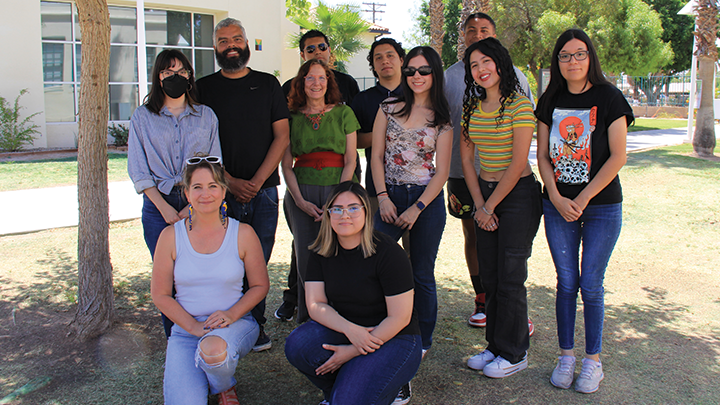SDSU Imperial Valley Students Tackle the ‘Right to Stay Cool’ Issue
Evelyn Suarez, an SDSU Imperial Valley psychology student, alongside her peers, studied how medical workers, teachers, and daily commuters who cross the U.S.-Mexico border for work or school may adjust their daily routines based on torrid temperatures. Through interviews conducted over a three-week period, the students examined disparities in access to water, basic shade and air conditioning.
“People’s lives who are constantly affected by the heat are used to knowing or seeing someone experience heat exhaustion or heat strokes,” said Suarez. “We are conditioned to think we can handle the heat when many public spaces or homes don’t have proper access to air conditioning, water or outdoor shade.”
“As a native from Brazil, I see many similarities in Rio de Janeiro and Imperial Valley in how people navigate heat issues,” said Roberto Ivo Da Rocha, a visiting professor of the Federal University of Rio de Janeiro, who alongside Linda Abarbanell, SDSU Imperial Valley associate professor of psychology and SDSU professor of anthropology, Erika Robb Larkins, are the study’s lead researchers.
“Heat not only affects people’s lifestyle, but also socioeconomic statuses and overall well-being. It has been a fantastic experience getting to guide and mentor our students,” said Larkins.
“The field work has been an amazing experience as we got to collaborate with colleagues from other departments, and gain knowledge about an important issue that is likely to become more critical on a global level in the near future,” said Abarbanell. “We had a great group of students that brought a lot of energy and enthusiasm as well as their lived experiences to the program. It was very rewarding to see them grow in confidence and bond with one another.”
Emily Figueroa, a SDSU Imperial Valley criminal justice student, looked into the challenges of using public transportation during a daily commute. In Calexico, Figueroa noted that some distance commuters may wait for longer periods at their bus stops and have no access to shade during peak hours of the day.
“Others shared with me that biking to work was their only form of transportation,” said Figueroa. “Everyone I interviewed had different levels of access to transportation. I hope the community and local leaders emphasize the need for more accessible transportation. It affects people’s mobility and overall quality of life.”
Following the conclusion of their Imperial Valley-based research contributions, each student presented their research findings to the study’s lead researchers. They also plan to present their findings at SDSU’s student research symposium next spring.
After the presentations, the faculty members will begin plans to send five students to Rio de Janeiro for the second portion of the field research.

